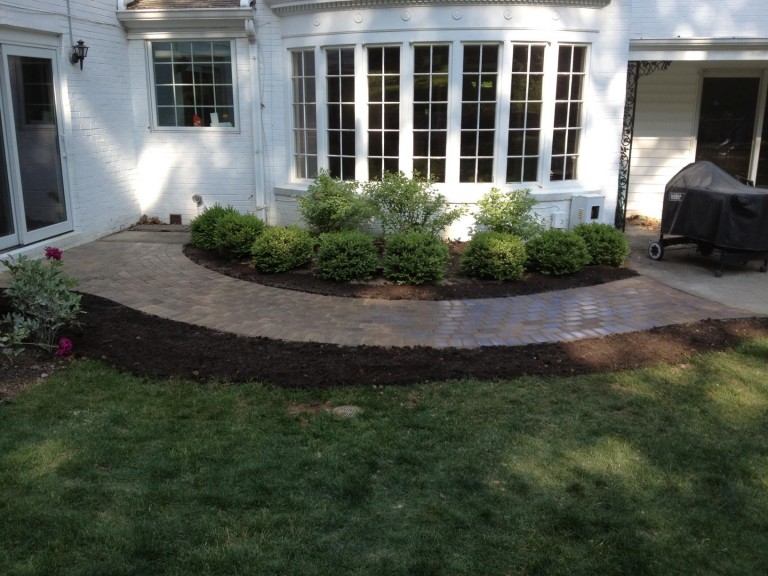Paver Sealer in Florida
In all the markets/cities/states that we clean and seal pavers in, Florida by far takes the cake when it comes to bad seal jobs that we come across. At least 50% of our business in Florida is removing failed paver sealers and re-doing the job correctly.
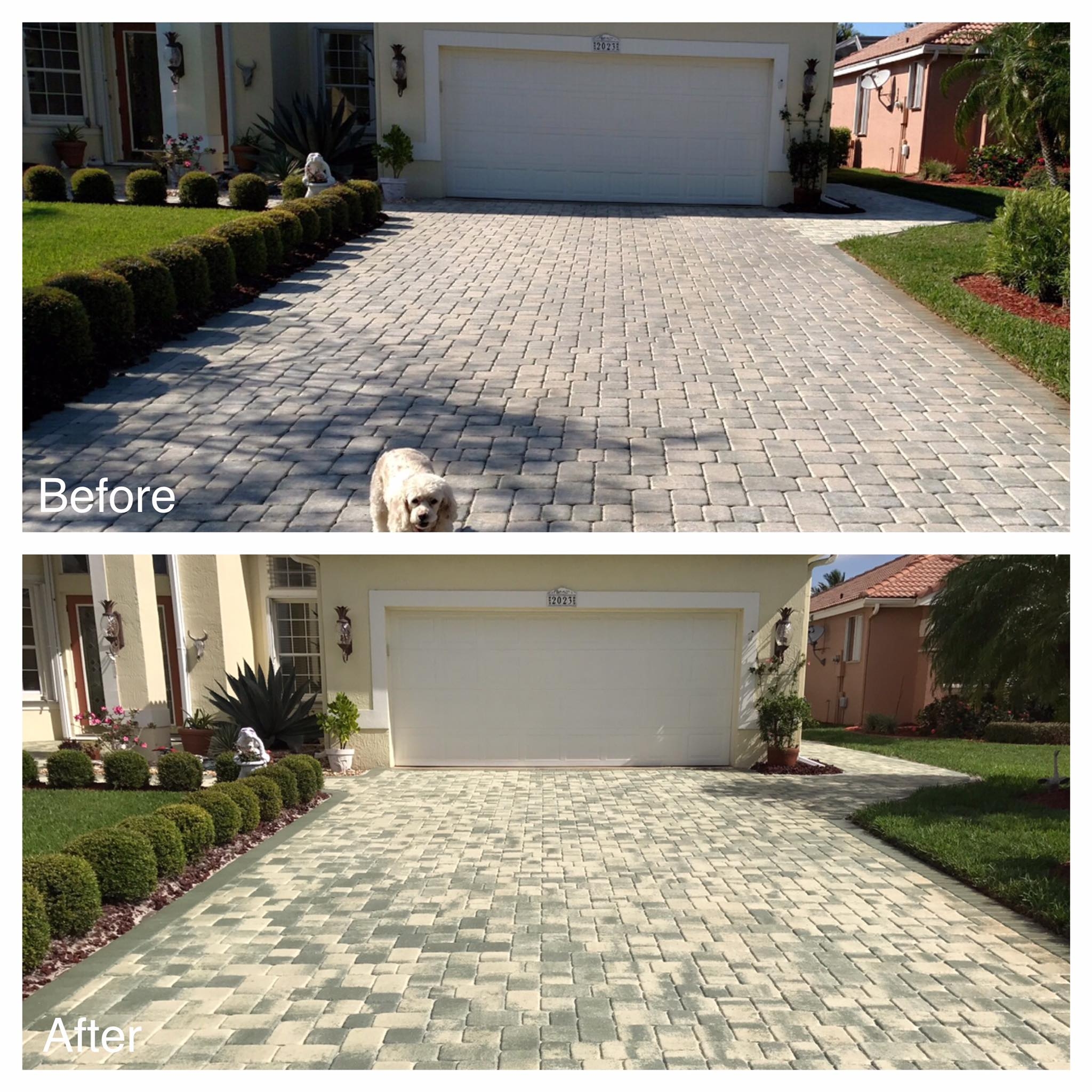
The homeowner of this paver driveway in Port St Lucie, FL didn’t even know his pavers had green color in them. The sealer had delaminated from the paver surface which casted a white haze over all the pavers. We steam stripped the sealer, re-sanded the joints and then sealed with our paver sealer and the end results couldn’t be better.
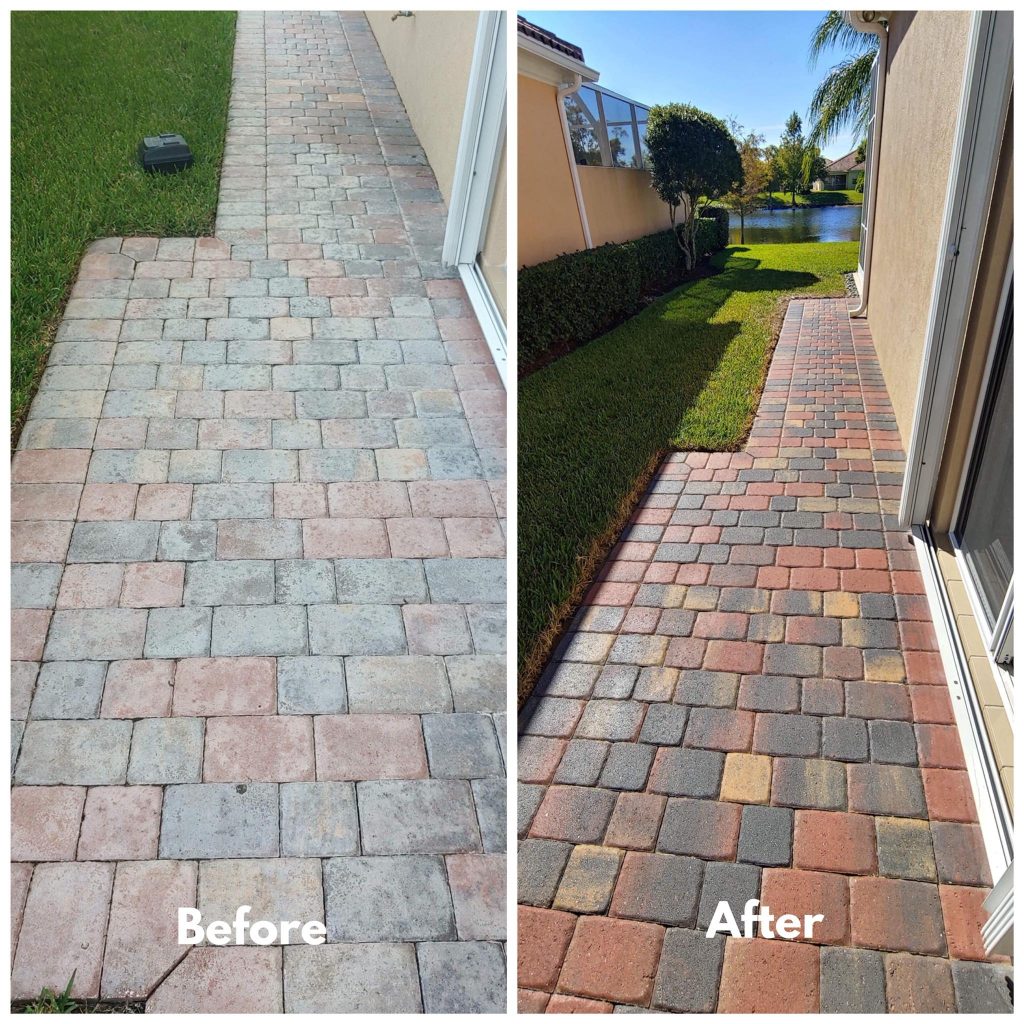
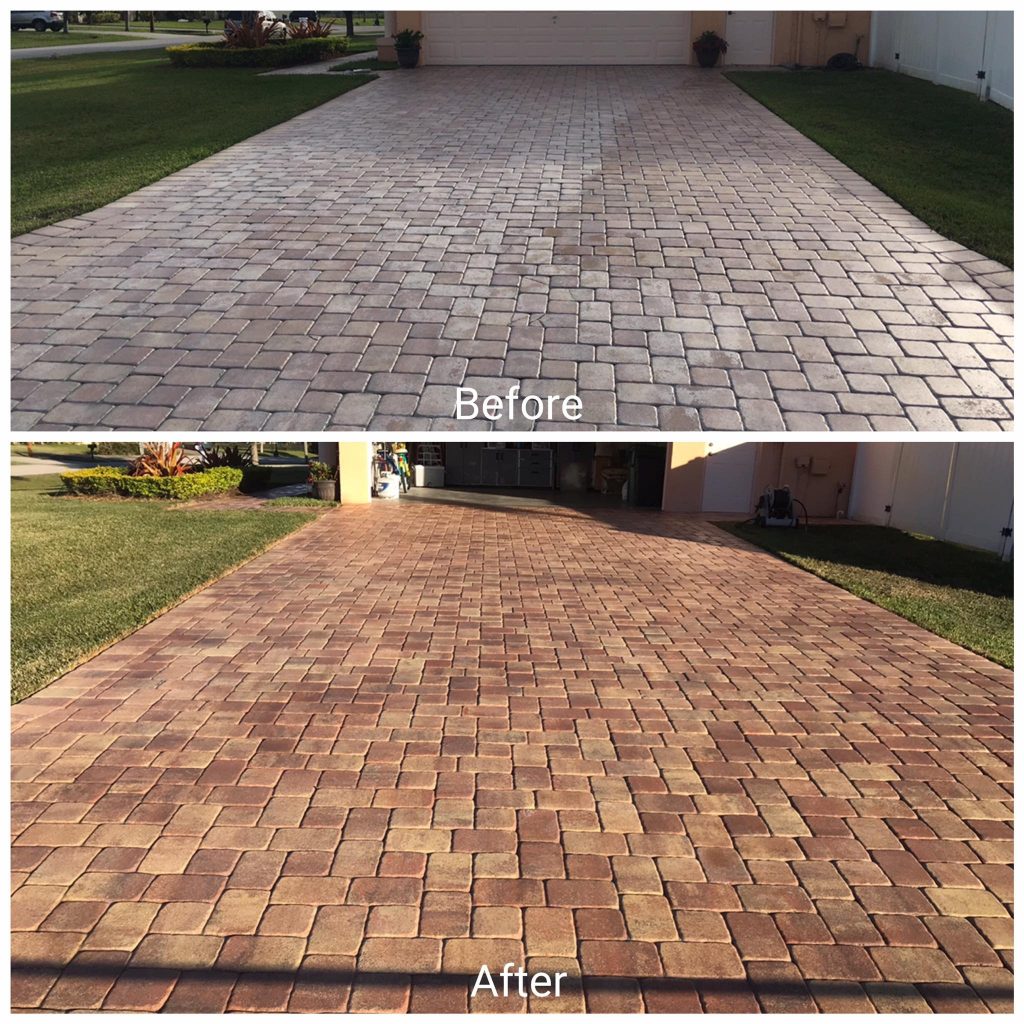
There are typically 2 reasons why sealer jobs go bad, and it can take anywhere from 1 day to several years before you can tell its bad.
Bad Paver Sealer in Florida
Probably the number one cause of failed paver sealer jobs in Florida is poor sealer selection. As you know, Florida has a high humidity level and also a high water table level. This means there is constantly moisture on the surface and moisture trying to escape from the ground. Most of the sealers used in Florida are solvent based sealers which are designed to keep water and moisture out. The problem is, they also keep water and moisture trapped in the paver. This moisture and water will begin deteriorating the bond that the sealer has with the paver and when this happens your sealer turns a white color.
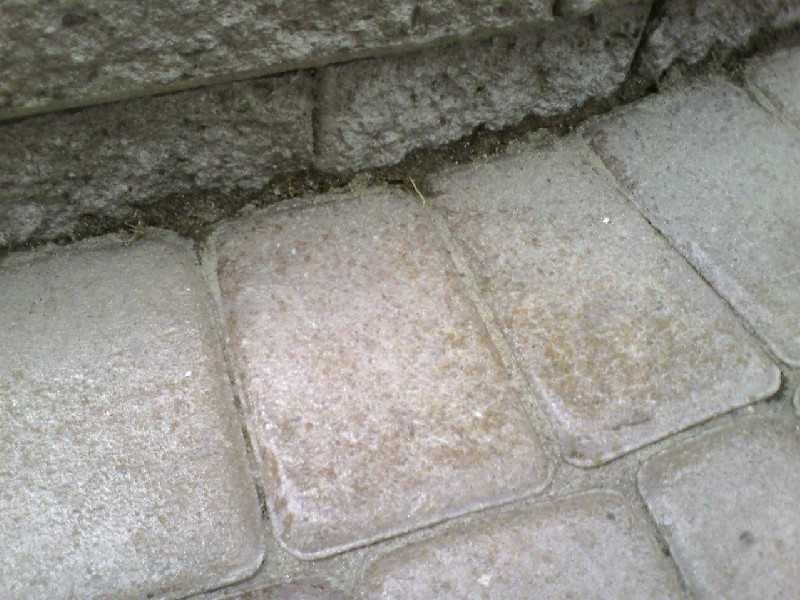
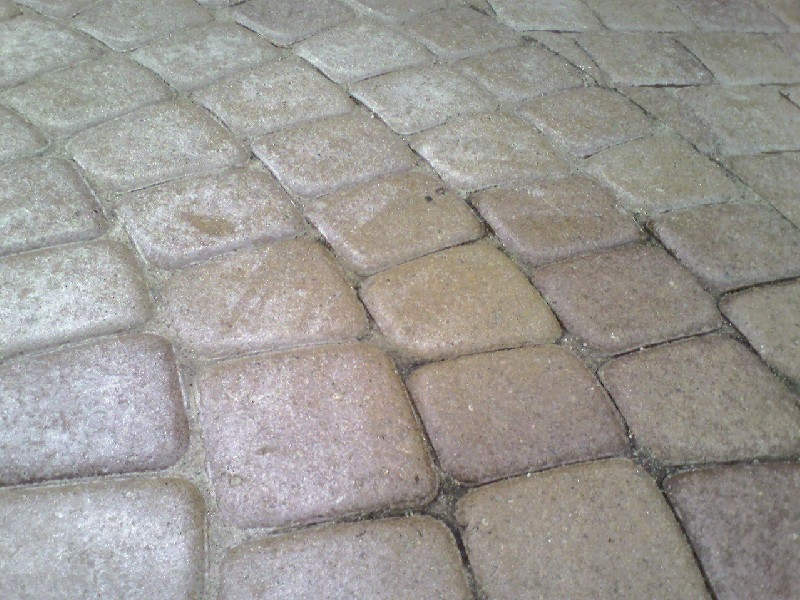
Notice how the sealer has turned white. This is because this sealer has detached from the paver and there is water trapped between the sealer and paver. Once this happens, the sealer pretty much needs to be stripped.
Our paver sealer at Perfect Paver Co is specially designed to work with the environment to allow the natural flow of moisture in and out of pavers. We are able to achieve this by using H2O (water) in place of the solvent based ingredients in our sealers. As the sealer cures, the water evaporates from our sealer leaving microscopic channels that allow moisture to flow in and out.
The term ‘sealing pavers’ is often compared to sealing a deck or sealing a basement where the goal is to keep water out. When it comes to pavers, thats not the goal. Pavers should be sealed regularly to prevent the surface of the paver from deteriorating from traffic, UV rays and rain. Exposure to these three events cause the finer materials in the surface of your paver to wear away leaving only the larger aggregates. The finer materials at the top of the paver is where all the color of your paver is held because the larger aggregate won’t absorb the color.
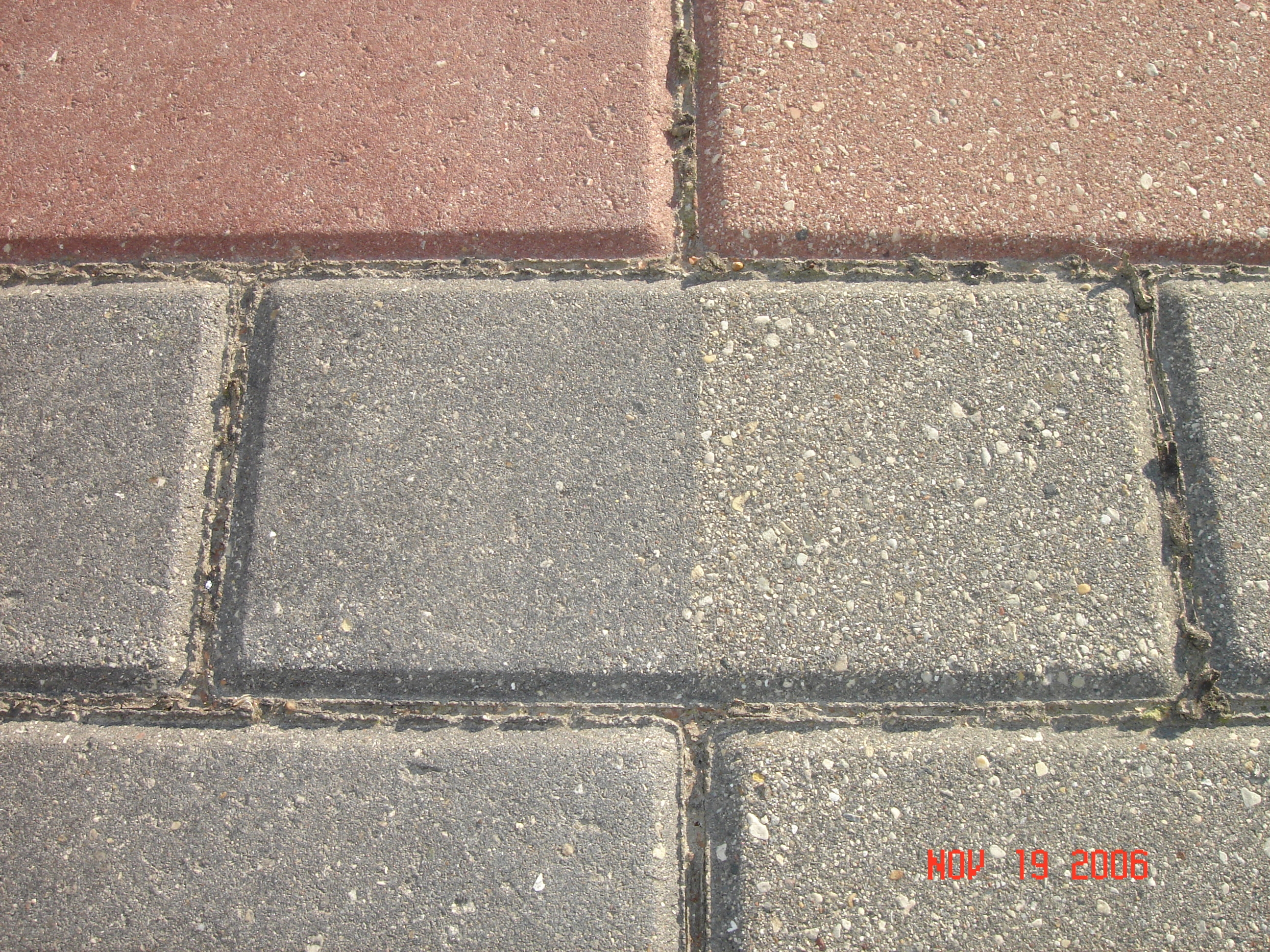
This picture does a great job of showing this wear. The pavers on the left have been sealed and the pavers on the right have not. Notice how the pavers on the right have started to loose the finer aggregate exposing the larger, colorless aggregate in the surface of the paver.
There are many other benefits of sealing pavers, but those benefits vary depending on the type of sealer being used.
Bad Paver Sealer Application
The second most common cause for failed paver sealer is due to improper application. Unlike any of the other markets/cities/states we provide paver cleaning and paver sealing in, Florida has more unexperienced companies offering paver sealing services than any of the others combined. In Florida, sealing pavers is one of the few trades or services a company can provide without needing a contractor license. So naturally, this industry attracts unskilled and unexperienced startups due to the ease of getting started (Getting a contractor license in the State of Florida can be very difficult).
Most bad paver sealer jobs start with poor surface preparation. Due to the porosity of concrete pavers, dirt and grime can become lodged deep in the pores of the paver. If this dirt is not removed prior to sealing, it will prevent the sealer from fully adhering to the paver. We use steam and hot water to throughly clean pavers. Most other companies simply use small cold water pressure washers.
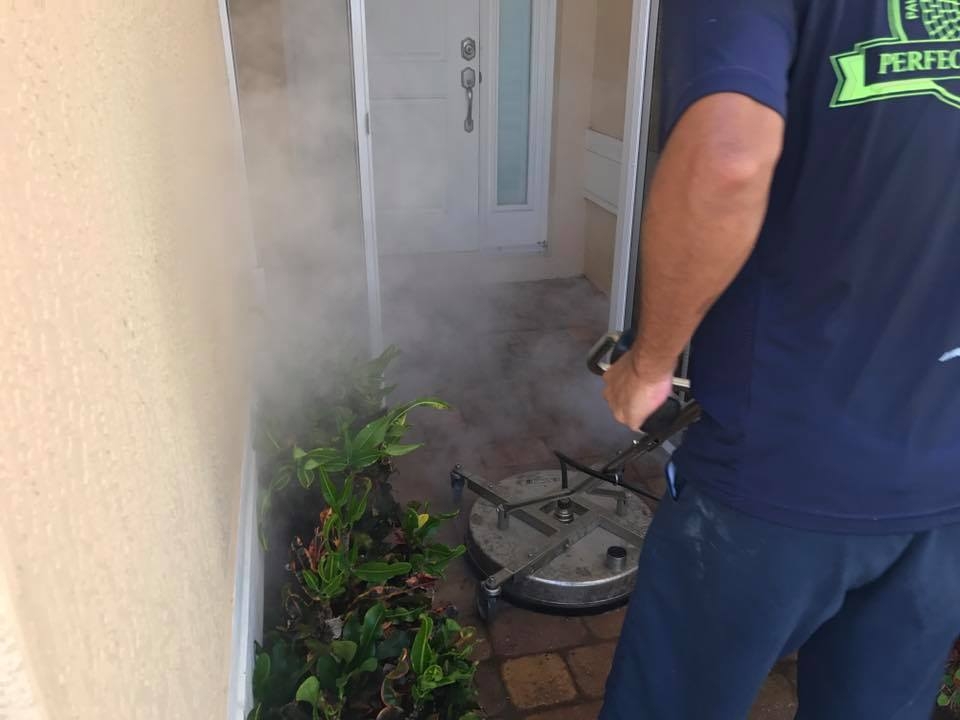
Our steam cleaning process in action. Most of the cleaning is contained inside the dome of our steam cleaning machine. This machine is powered by equipment mounted inside of our truck.
Need your pavers sealed in Florida?
If your pavers are in need of cleaning and sealing, please consider the Perfect Paver Co. Our crews are highly specialized in sealing pavers; that’s all we do every day.
Please request an estimate by completing the contact form on our website here.







